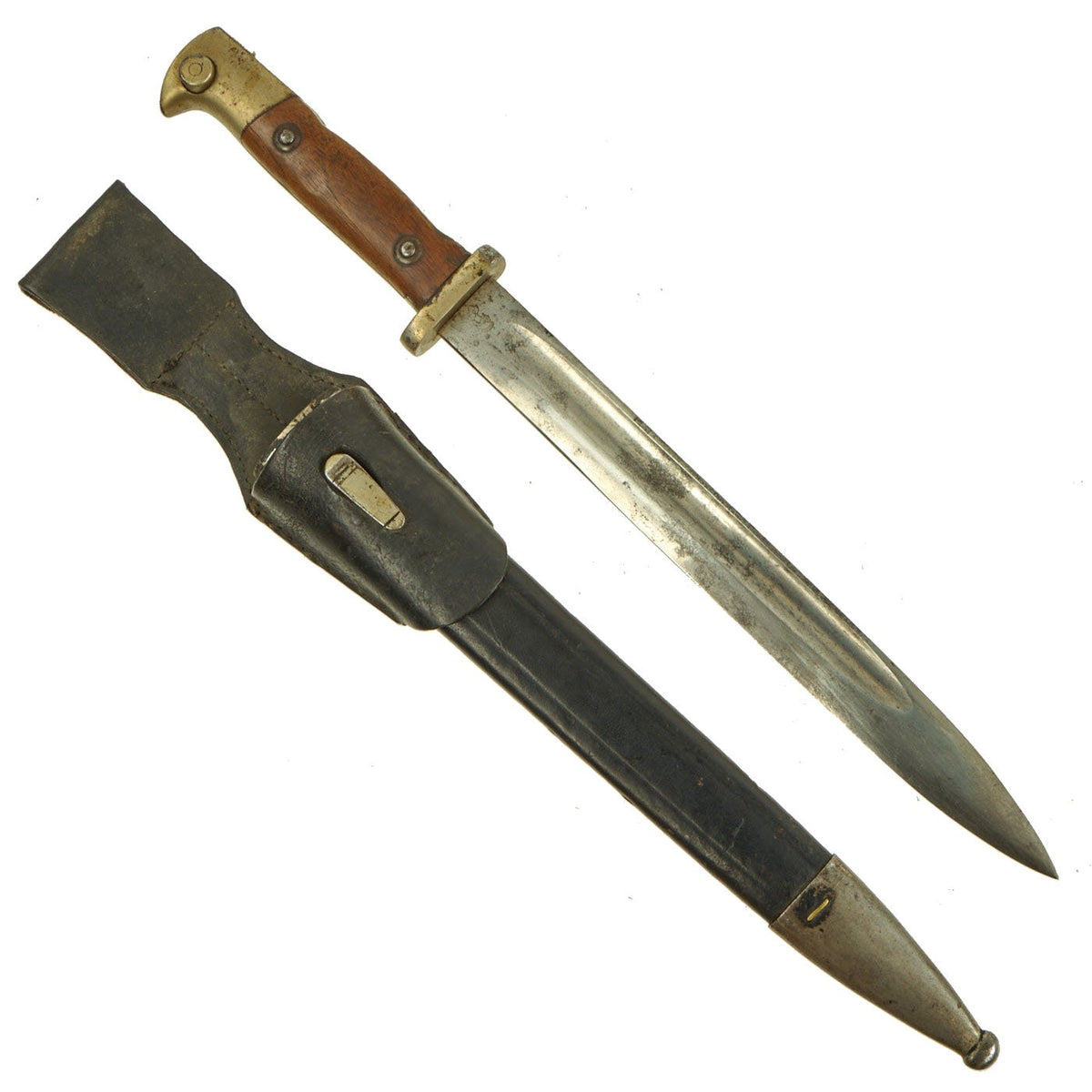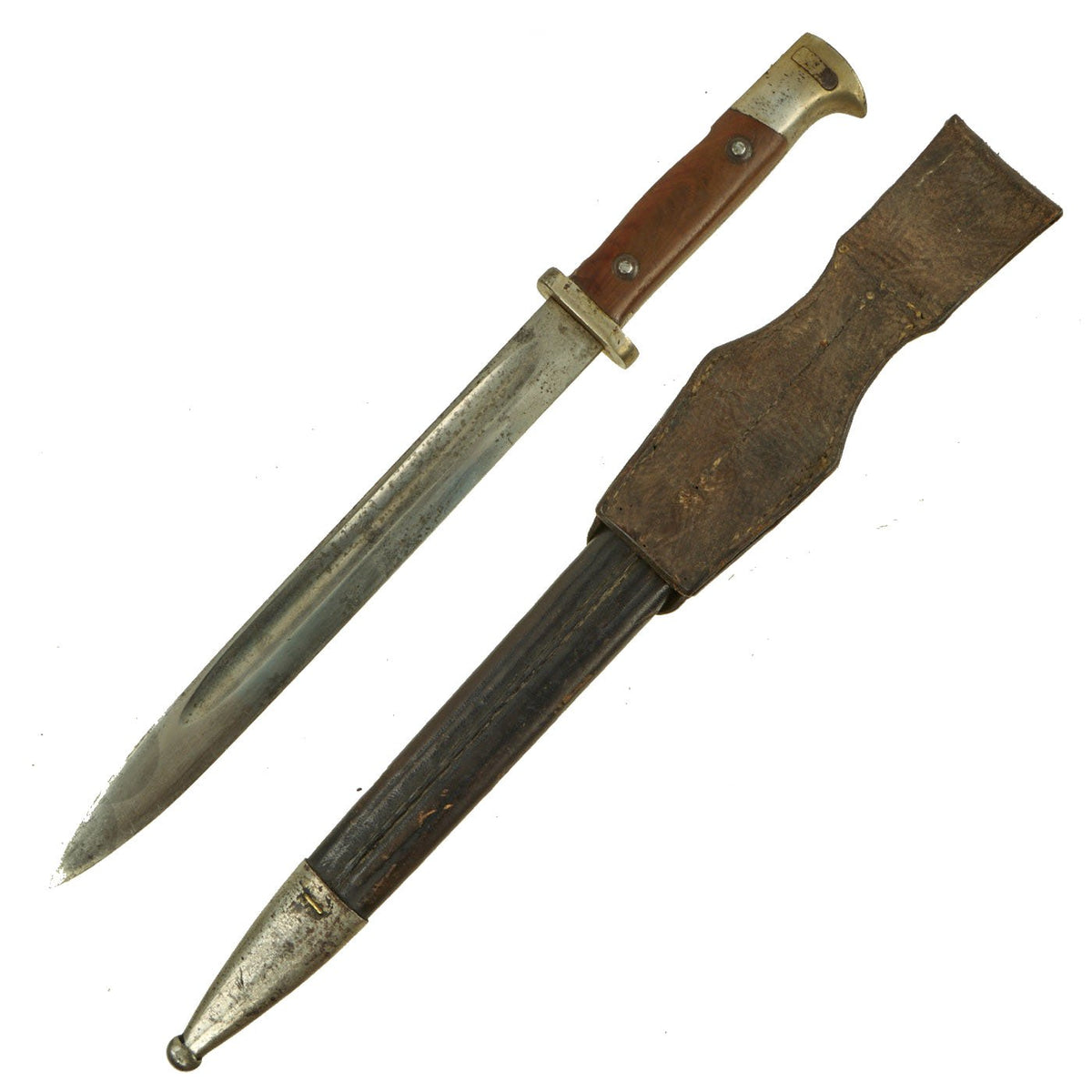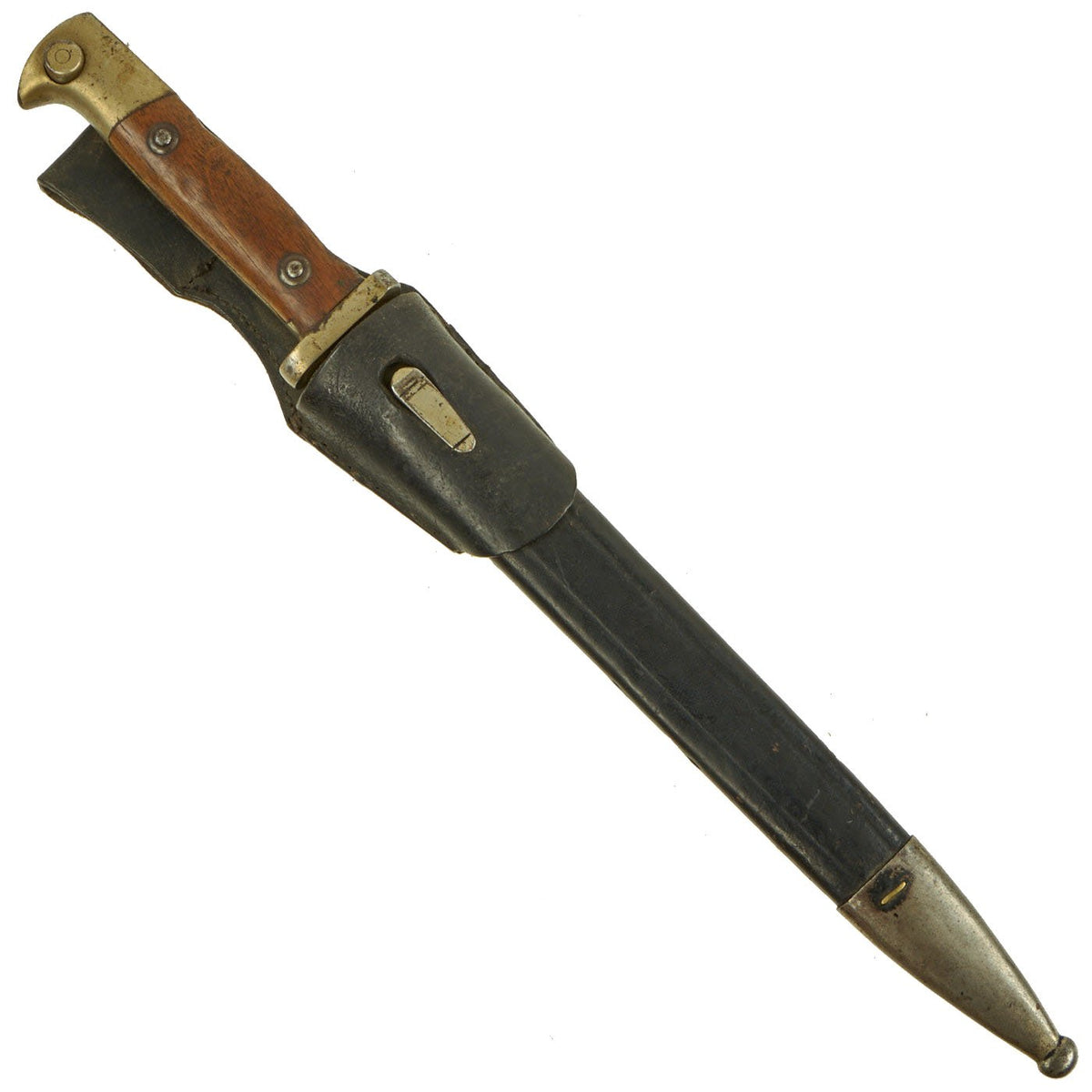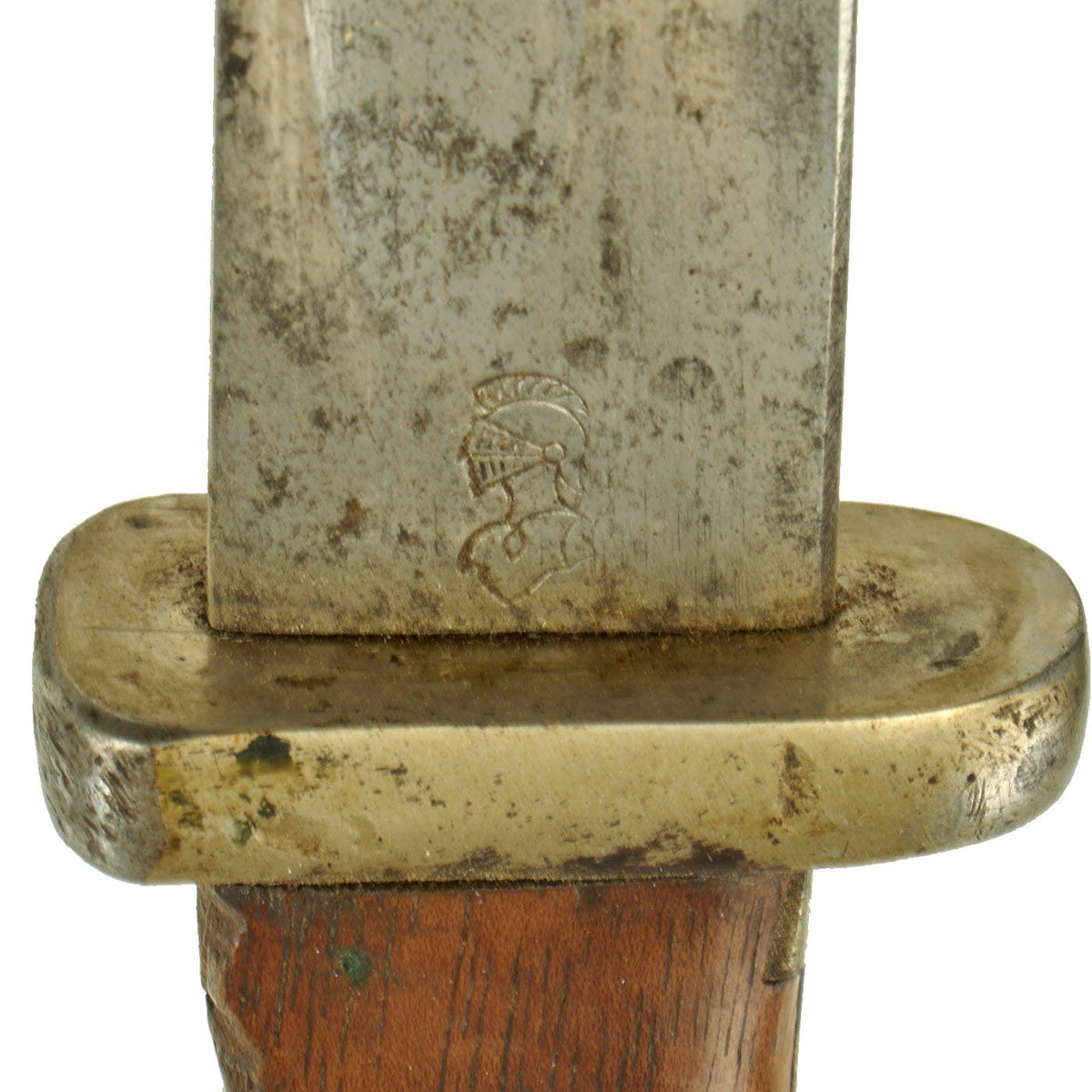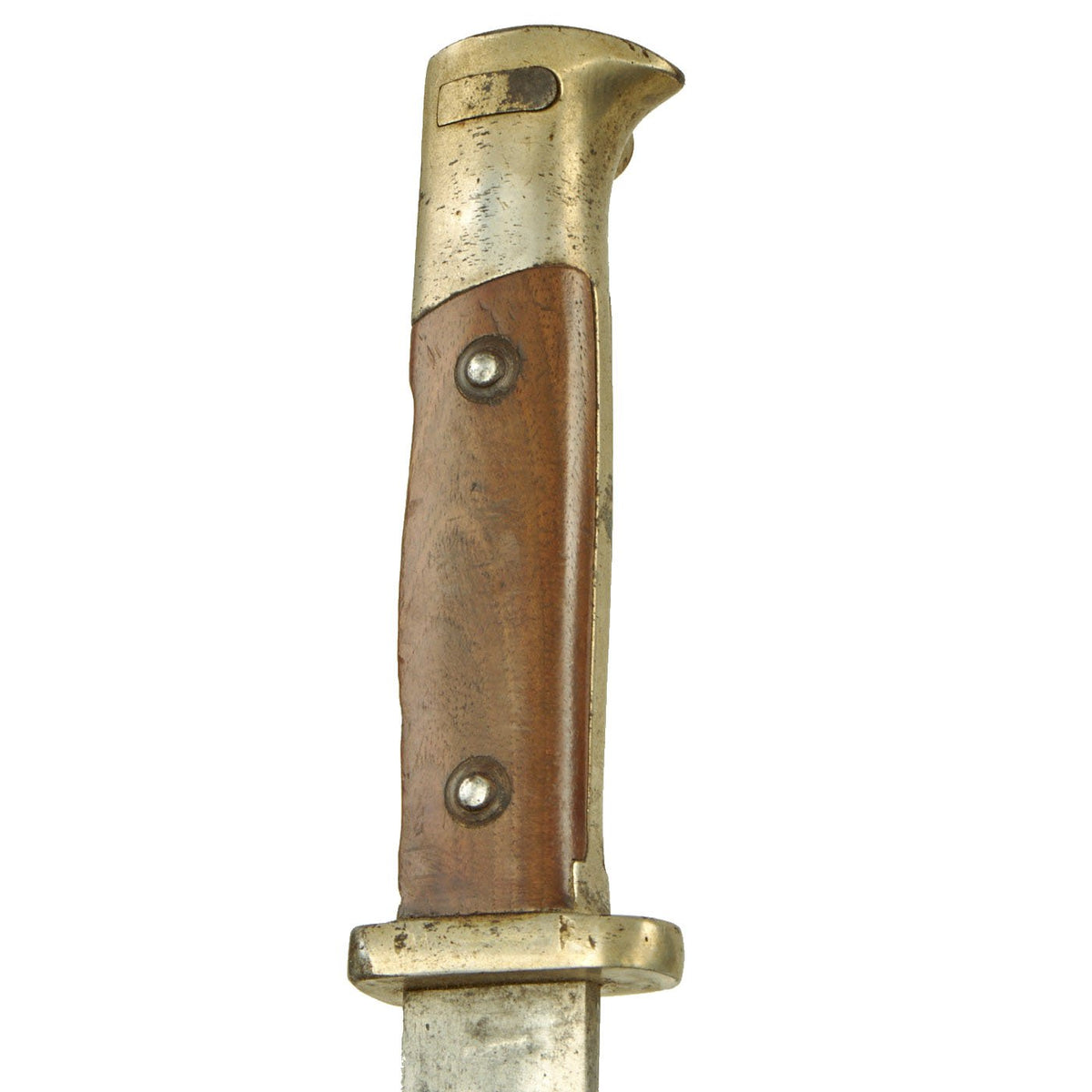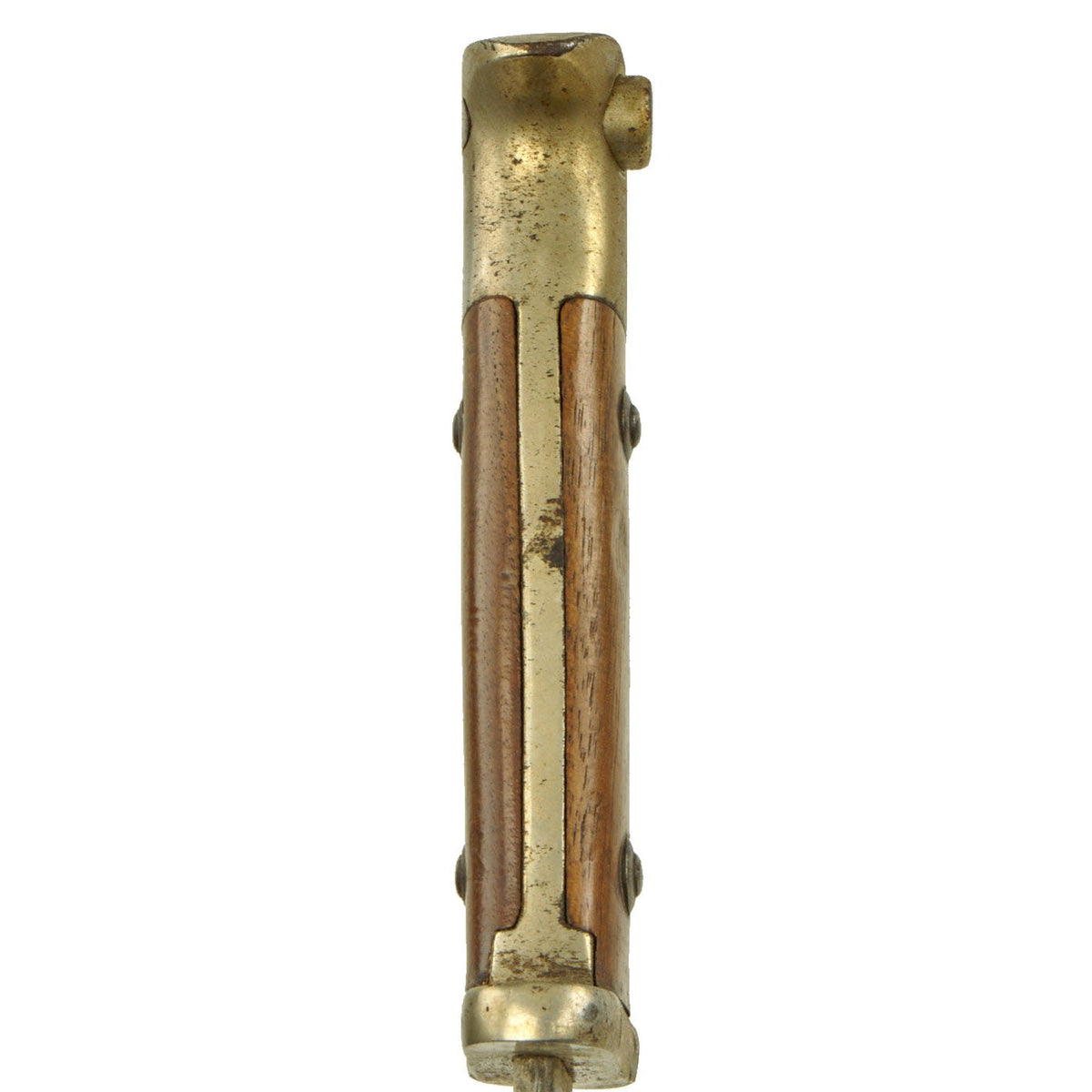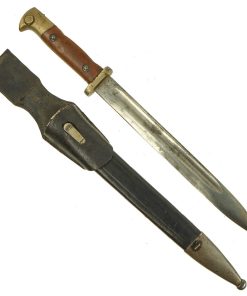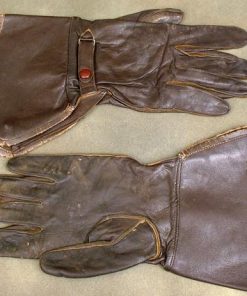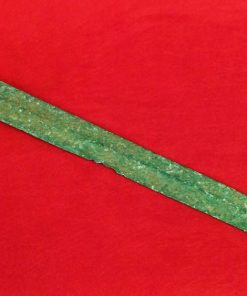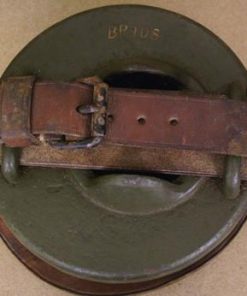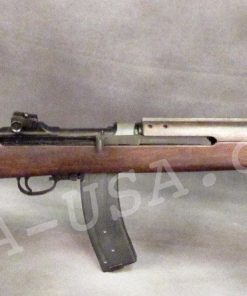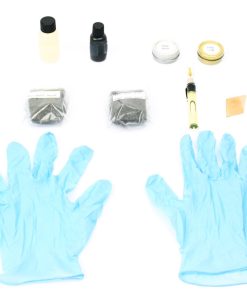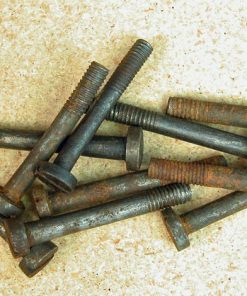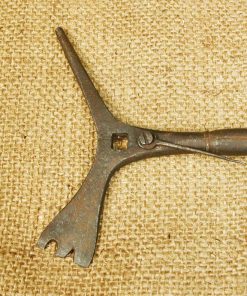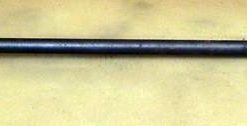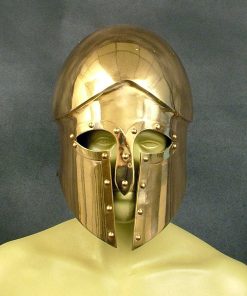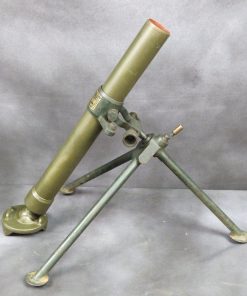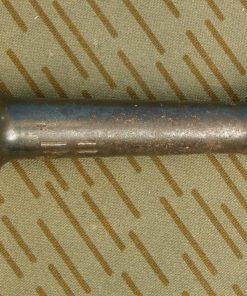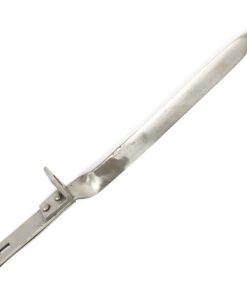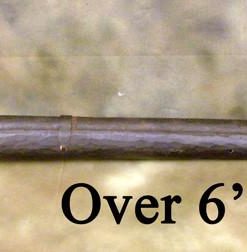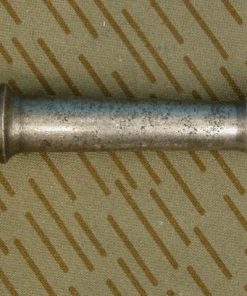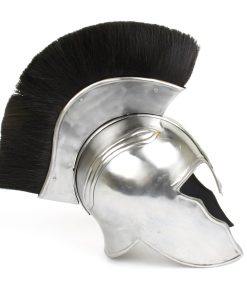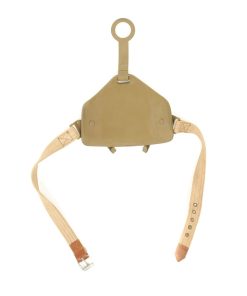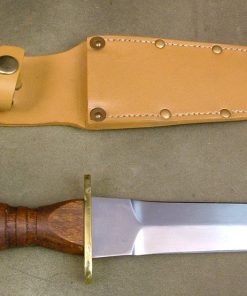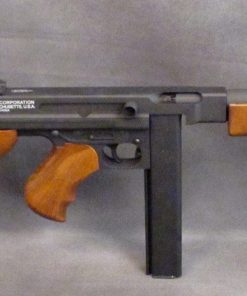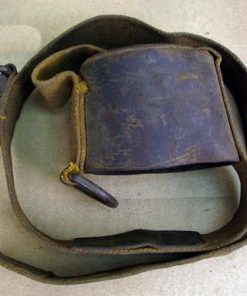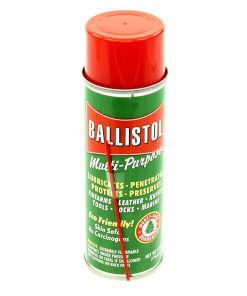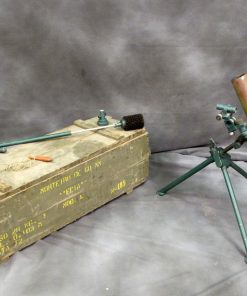Original German Mauser M1871/84 Dress Bayonet by Weyersberg Kirschbaum & Cie with Scabbard & Frog Original Items
$ 250,00 $ 100,00
Original Item: Only One Available. This is a very nice example of the rare Mauser Model 1871/84 rifle bayonet (Seitengewehr) with scabbard, with a nickel plated hilt intended for parade use. The bayonet is in very good condition, though as with many of the S.1871/84 bayonets, it later had its muzzle ring ground off, so as to fit on the later Gewehr 98 and k98K. This happened after the bayonet had been nickel plated, and evidence of the muzzle ring can still be seen. It has the typical oblong crossguard of this type of bayonet, which differentiates it from the very similar export models. The M1871/84 was the first knife bayonet to become general issue in a major army, setting a trend that continues to the present day.
The hilt on this example is textbook, with the spine recessed inward, and rivet retained wooden grips. The nickel plating is well retained, and the bayonet lock still functions perfectly. There is a felt insert in the slot for the bayonet lug. The steel blade is 10″ long and is in very good condition, with just a few small areas of pitting on the spine and other areas. There is also some staining, but overall the original bright finish is still well retained. The edge is still blunt, as is correct for a parade bayonet.
The reverse ricasso is etched with the trademark “Knights-Helmet” (Ritter-helm) logo of legendary maker Weyersberg Kirschbaum & Cie of Solingen. This company is a famous manufacturer of military swords and cutlery in Solingen, Germany – a city famous since the middle ages for its metal-working and craftsmanship in sword making. Per J. Anthony Carter’s fine work GERMAN SWORD AND KNIFE MAKERS, the traditional manufacturing of swords at WKC dates back to the year 1774 when the Weyersberg first registered the ”Kings head” as their trademark. Later in 1883 the company merged with the Kirschbaums and the company WKC was formed as it exists today.
The bayonet comes complete with a correct steel fitted leather scabbard, which originally had nickel plated fittings, now mostly worn away. It is in very good condition, and held in a leather frog, or Seitengewehrtragetasche, which is also in good shape. There is some splitting at the seams, and the leather is somewhat dried out, but it still presents very well.
A very nice example of this rare bayonet, complete with a scabbard and frog. Ready to display!
Dimensions:
Blade length: 10”
Blade Style: Single Edged with Fuller
Overall length: 15”
Crossguard: 1 5/8”
Scabbard length: 11 1/8″
The Mauser Model 1871 adopted as the Gewehr 71 or Infanterie-Gewehr 71, or “Infantry Rifle 71” (“I.G.Mod.71” was stamped on the rifles themselves) was the first rifle model in a distinguished line designed and manufactured by Paul Mauser and Wilhelm Mauser of the Mauser company and later mass-produced at Spandau arsenal.
Paul Mauser developed his bolt-action rifle from 1867 to 1871. During 1870–71 trials with many different rifles took place, with the “M1869 Bavarian Werder” being the Mausers’ chief competitor. The Mauser was provisionally adopted on 2 December 1871, pending the development of an appropriate safety. With support from the government’s Spandau arsenal, the improvements to the safety mechanism were completed and the rifle was formally accepted on 14 February 1872 as Infantry Rifle Model 1871 by the German Empire excluding Bavaria. General issue to troops began in late 1873 and all units had been converted by the spring of 1875.
The design was updated in 1884 with an 8-round tubular magazine designed by Alfred von Kropatschek, making this Germany’s first repeating rifle. This version was designated the Gewehr 1871/84, and a new shorter bayonet was developed for this rifle. These bayonets are extremely rare on the market today.
Fast Shipping with Professional Packaging
Thanks to our longstanding association with UPS FedEx DHL, and other major international carriers, we are able to provide a range of shipping options. Our warehouse staff is expertly trained and will wrap your products according to our exact and precise specifications. Prior to shipping, your goods will be thoroughly examined and securely secured. We ship to thousands clients each day across multiple countries. This shows how we're dedicated to be the largest retailer on the internet. Warehouses and distribution centres can be located throughout Europe as well as the USA.
Note: Orders with more than one item will be assigned a processing date depending on the item.
Before shipping before shipping, we'll conduct a thorough inspection of the items you have ordered. Today, the majority of orders will be delivered within 48 hours. The delivery time will be between 3-7 days.
Returns
The stock is dynamic and we cannot completely manage it because multiple stakeholders are involved, including our factory and warehouse. So the actual stock may alter at any time. It's possible that you may not receive your order once the order has been made.
Our policy is valid for a period of 30 days. If you don't receive the product within 30 days, we are not able to issue a refund or an exchange.
You can only return an item if it is unused and in the same state as the day you received it. You must have the item in its original packaging.
Related products
Uncategorized
Armoured Fighting Vehicles of the World: AFVs of World War One (Hardcover Book) New Made Items
Uncategorized
Uncategorized
Uncategorized
Australian WWII Owen MK1 Machine Carbine SMG Custom Fabricated Replica with Sling Original Items
Uncategorized
Uncategorized
Uncategorized
Uncategorized
Uncategorized
Uncategorized
Uncategorized
Uncategorized
Uncategorized
Uncategorized
Uncategorized
